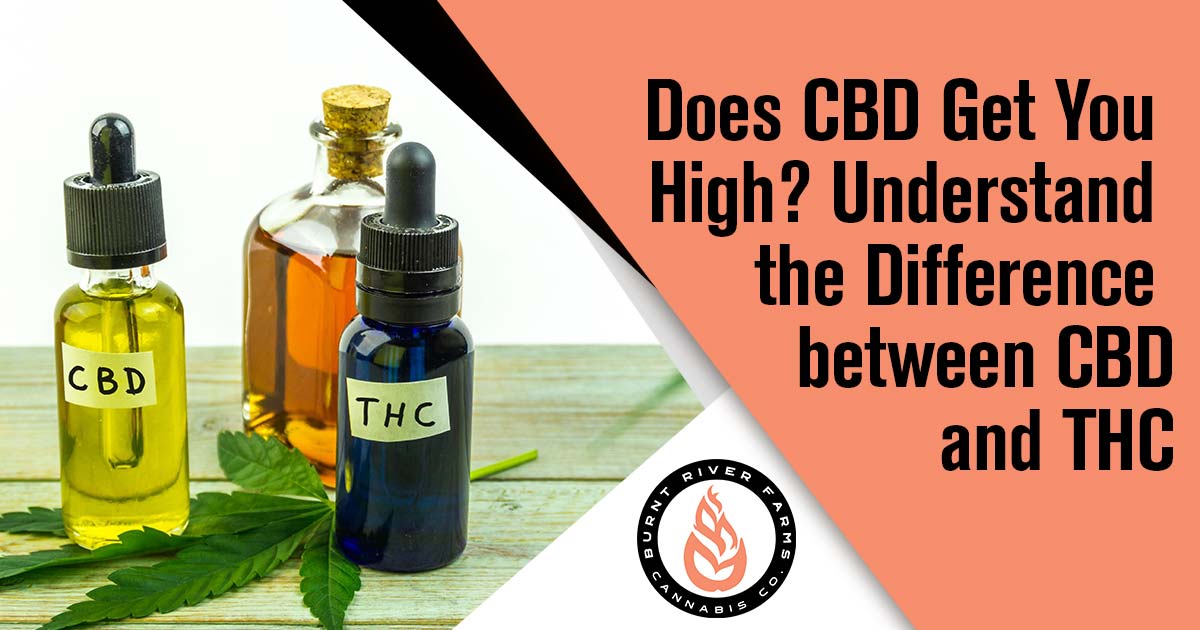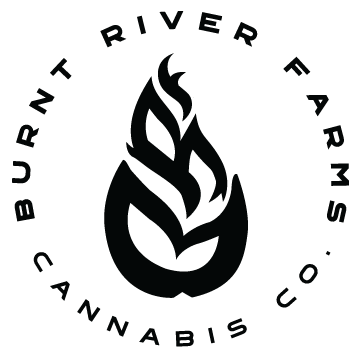Does CBD Get You High? Understand the Difference between CBD and THC

As researchers continue to learn about the health benefits of cannabis, many people are searching for the right product for them. And, while some consumers enjoy the high caused by the marijuana plant, others would prefer not to experience that particular effect. This is why so many people ask the question “Does CBD Get You High?” We’ll take a closer look at CBD vs THC to help you decide which products are right for you.
What Exactly is CBD?
Cannabidiol (CBD) and tetrahydrocannabinol (THC) are the two most well-known chemical compounds known as cannabinoids from the Cannabis Sativa plant. Both CBD and THC are present in all types of marijuana plants but at different levels. Some strains of cannabis have higher doses of CBD while others have more THC. The average cannabis plant generally contains about 15% THC and only 0.15% CBD. Though selective breeding has caused these numbers to change significantly over the years.
While it doesn’t seem like typical plants have much CBD, there is a variety of C. Sativa known as hemp that has much more CBD. Hemp plants must legally contain less than 0.3% THC but can contain much higher quantities of CBD. The average hemp plant now sits at about 20% CBD.
Effects of CBD and Benefits of CBD
Public interest in CBD has grown considerably across the United States in recent years. This is largely due to the positive effects and potential health benefits of CBD products. Research has shown that CBD may reduce inflammation, help treat some forms of epilepsy, and may help with a number of other conditions including:
- Anxiety
- Depression
- Dementia
- Schizophrenia
- Chemotherapy side effects
- Nerve and muscle pain
- Weight loss
CBD may also have therapeutic benefits for those suffering from neurodegenerative diseases such as Alzheimer’s, Huntington’s, Multiple Sclerosis, and Parkinson’s. There’s also evidence that CBD reduces inflammation for people suffering from inflammatory diseases such as rheumatoid arthritis, nerve pain, eases anxiety and depression, seizure disorders, helps ease pain and inflammation for those with inflammatory bowel and Crohn’s diseases, and assists in relieving pain and chronic pain.
CBD vs THC
CBD and THC both have the same chemical makeup, but not the same chemical arrangement. Therefore, the body views them as different compounds. These two compounds interact with the body in different ways by binding to the neurotransmitters in the brain.
THC creates psychoactive effects. This accounts for the feeling of being “high.” The intoxicating effects of marijuana are why the drug remains illegal in many states.
Alternatively, CBD is considered to be “non-psychoactive,” meaning users don’t get that feeling of being “high.” Even though CBD products are legally allowed to contain trace amounts (up to 0.3%) of THC, it is not enough to create a psychoactive response.
Both of these cannabinoids communicate directly with the body’s endocannabinoid system, also known as ECS. The ECS is one of the most important systems in the human body. It plays a significant role in regulating several important functions and processes including appetite, fertility, memory, mood, reproduction, and sleep. And, while each cannabinoid interacts with the ECS, they have different properties and benefits.
Types of CBD
The U.S. Food and Drug Administration recognizes that CBD products have potential health benefits. However, they also note that additional research is needed to fully understand how CBD interacts with the body’s systems.
CBD products are available and widely used in three forms.
- Full Spectrum CBD
This CBD product includes all components of the cannabis plants, including a small amount of THC. While, legally, this amount is no more than 0.3% THC, it is still present. In some states, this may affect your ability to purchase full-spectrum CBD products legally.
- Broad Spectrum CBD
This version of CBD is like the full spectrum version but without the THC.
- CBD Isolate
This is a pure form of CBD with no other compounds from the cannabis plant.
In addition to the different types of CBD, it also comes in various forms. There are a number of ways to use CBD. You may choose different forms or methods depending on what gives you the best results.
CBD Oils, Hemp CBD Oil and Tinctures
CBD oils and CBD tinctures are CBD-infused liquids. They’re taken sublingually, which means the oil is placed under the tongue. They tend to be easy to find and have a rapid onset if they’re held under the tongue rather than being swallowed. The downside is that some people may not appreciate the taste of them. Flavors may vary depending on what, if any terpenes are included.
Edibles
These are ingestible CBD products such as CBD gummies. They’re consumed orally. Many people like these because dosing is easy and they’re discreet. However, anything eaten does take longer to produce the desired effect.
CBD Capsules and Pills
These are self-explanatory pills or capsules made with CBD oil. They’re taken orally, easy to dose, but have a longer onset time and may be hard for some people to swallow.
Lotions and creams
Topicals such as creams, lotions, ointments, or patches are applied directly to the skin. They provide direct relief to a targeted area of the body. They don’t provide all-over relief and may be difficult to dose but are a common way for individuals to get focused relief in problem areas.
Vaping
Vaping is an alternative to smoking for many individuals. CBD-infused liquids are inhaled with the use of a vaporizer. This method is the fastest way to receive the effects of CBD. However, more research is needed to fully understand the effects of vaping on the respiratory system.
Choosing the Right CBD Product for You
The most important things when choosing a CBD product are to understand the laws in your area and what you can legally purchase and use. You’ll also want to make sure that your employer has no rules against using CBD. It’s also wise to consider if you will have to undergo any drug testing for any reason. While the amount of THC in full-spectrum CBD products is negligible, it still may show up on drug tests.
The next step in choosing the right CBD product for your situation is to speak with someone at a reputable dispensary. These employees are knowledgeable and here to help you find just what you need. They can walk you through the benefits of each product they carry to help determine what will work best for you.
CBD Effects
Lastly, you want to make sure you follow all dosing instructions. While CBD rarely exhibits any noticeable side effects, it may interact with medications you’re already taking. Always consult a medical professional to determine if it is safe to use CBD with your current medications.
